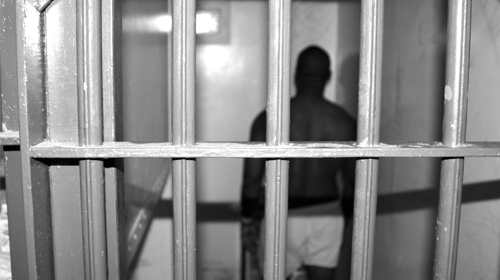Court-Sanctioned Extortion by Private Probation Companies: Modern Debtors' Prisons


Yesterday, Human Rights Watch released Profiting from Probation, a report that confirms the ACLU's worst fears about the privatization of probation services: for-profit companies are increasingly working with county and city courts around the country to extort poor people for money, including by illegally jailing them simply because they are too poor to pay court-imposed fines and fees. While poor people suffer and taxpayers foot the bill for hidden costs, private companies make big money—to the tune of an estimated $40 million in revenue in Georgia alone, according to the report.
Human Rights Watch tells the story of Thomas Barrett in Georgia. Unemployed and living off food stamps, Barrett was out on probation and ordered to pay a $200 fine for stealing a $2 can of beer from a convenience store. On top of that, Sentinel Offender Services, LLC, the company administering Barrett's probation, charged him $360 per month in supervision and monitoring fees despite the fact that Barrett's only source of income was money earned by selling his blood plasma. Barrett skipped meals to try to make payments to Sentinel. But he still fell behind and eventually owed the company over $1000 in fees—five times more than the $200 fine imposed by the court. Seeking to get its money, Sentinel successfully petitioned a court to revoke Barrett's probation, and the court jailed him. Yet at no point did Sentinel or the court take into consideration Barrett's ability to pay—the latter, a clear violation of the law. Imprisoning someone because she cannot afford to pay court-imposed fines or fees violates the 14th Amendment.
Barrett is one of hundreds of thousands of poor people across the country who are being squeezed for debt collection by an unholy alliance between private probation companies and cash-strapped county and city courts. More than 1,000 courts across several states, including Georgia, Mississippi, Tennessee, Florida, and Alabama, seek to generate revenue by collecting unpaid debt from those convicted of misdemeanors without hiring staff to administer probation. Instead, these courts contract with private firms that seek to make a profit and promise to do the job for free. However, privatization simply shifts costs onto poor probationers through fees paid directly to private firms, which are entirely distinct from fines imposed to punish or deter crime. Perversely, those least able to pay remain on probation the longest and pay the most to private probation companies.
It is not news to the ACLU that private probation companies are engaged in a court-sanctioned extortion racket with devastating human costs. In a 2010 report, In for a Penny: The Rise of America's New Debtors' Prisons, we described how in Georgia the profit motive gave private companies a clear financial interest in extending probation terms in order to collect additional fees and drove certain probation officers to engage in abuse and coercion to secure payments from poor probationers, including by threatening jail time and seeking court-issued arrest warrants for those who miss debt payments. Human Rights Watch's extensive investigation confirm that these problems have only worsened since 2010 as the private probation industry has grown. The result is a system that illegally discriminates against the poor and disproportionately affects racial and ethnic minorities, who are over-represented in the criminal justice system.
The evidence is clear: incarcerating poor people for failing to pay criminal justice debts they cannot afford is not only illegal, but senseless. Taxpayers are left footing the bill for jailing the poor. And both incarcerating and extending probation for those too poor to pay fines and fees erect major barriers to their successful reentry into society, imposing serious costs on probationers who seek to move on with their lives, and the public at large—all while private probation companies profit.
For all of these reasons and more, the ACLU has long advocated for an end to the privatization of probation. It is unconstitutional for the government to create debtors' prisons. It is unconscionable for private companies to profit from them. The time is now for courts to shut down this extortion racket and get private companies out of the probation business.
Learn more about debtors prisons and other civil liberty issues: Sign up for breaking news alerts, follow us on Twitter, and like us on Facebook.
Stay informed
Sign up to be the first to hear about how to take action.
By completing this form, I agree to receive occasional emails per the terms of the ACLU's privacy statement.
By completing this form, I agree to receive occasional emails per the terms of the ACLU's privacy statement.

